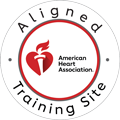Chronic Kidney Disease, also known as Chronic Kidney Failure, is when your kidneys work less than normal. When kidney disease progresses, it will usually lead to kidney failure also known as end-stage kidney disease. End-stage kidney disease often requires dialysis or a kidney transplant for the survival of a patient. But, early detection of kidney disease can help prevent kidney failure. Chronic kidney disease occurs when the kidneys do not filter waste and fluids from your blood. The two main causes of chronic kidney disease are type 1 or 2 diabetes and hypertension (high blood pressure). Some of the other conditions that might cause chronic kidney disease are glomerulonephritis, which is an inflammation of the kidney’s filtering units; Interstitial nephritis, which is an inflammation of the kidney’s tubules; Vesicoureteral, which is a condition in which urine backs up into your kidneys; Pyelonephritis, a kidney infection; kidney stones; and Polycystic kidney disease.
There are a few risk factors that might increase an individual’s risk of getting chronic kidney disease. Some of the factors are smoking, heart disease, obesity, cholesterol, family history of kidney disease, seniors, and being an African–American, Native American, or Asian- American. People who have chronic kidney disease have a higher risk of getting heart and blood vessel disease. Not many symptoms might appear or be severe until the kidney disease is chronic. But, some of the symptoms that might be noticeable are fatigue, trouble sleeping, swelling of feet and ankles, hypertension (high blood pressure), and itchiness. People who have chronic kidney disease can have many complications that could affect their body. Some of the complications might include fluid retention, a rise in potassium levels which might decrease the function of your heart, heart disease, damage to the central nervous system, increased risk of getting an infection, end-stage kidney disease, anemia (low blood count), and pericarditis (an inflammation of the pericardium).
Unfortunately, there is no cure for chronic kidney disease. The treatment for chronic kidney disease is to reduce complications and slow the progress of the disease. Treatment for chronic kidney disease depends on the cause of the disease. Even if the cause is controlled, kidney disease might continue to progress and get worse. For example, if the sugar level of a person who has diabetes is controlled his/her kidney disease still might continue to worsen. Many of the medications that are given to people who have kidney disease are to reduce a complication. Some of the medications that are given to those suffering are medications that lower high blood pressure, medications that lower cholesterol levels, medications that increase your blood count/treat anemia, medications that reduce fluid retention (swelling of legs), and medications that protect your bones.
When a person completes kidney failure or is near a kidney failure, then they have end-stage kidney disease. At end-stage kidney disease, a person needs dialysis or a kidney transplant. Dialysis artificially removes waste products and fluids from the blood. There are two types of dialysis: hemodialysis, and peritoneal dialysis. In hemodialysis, a machine filters waste products and fluids from your blood. In peritoneal dialysis, the inside lining of the abdomen acts as a filter, and wastes are taken out by a solution. In a kidney transplant, a healthy kidney from a donor is placed into the patient’s body surgically. Kidneys can be transplanted from a deceased donor or a living donor. After the kidney is transplanted, the person needs to take medications for the rest of his/her life to keep the body from rejecting the kidney.
A person who has an increased risk of getting chronic kidney disease can determine if they have kidney disease from the following tests. Blood tests can determine the creatinine and urea in the blood, which determines the level of waste in the blood. The second test is a urine test. A urine test can help identify the causes of the kidney disease. Glomerular Filtration Rate (GFR) is the best test to measure the level of kidney function. An ultrasound or CT scan can also help tell whether the kidneys are too small or large, and if a person has any kidney stones.
References:
National Kidney Foundation
Call Us Now
Get the Best CPR Class in Tampa Today!


